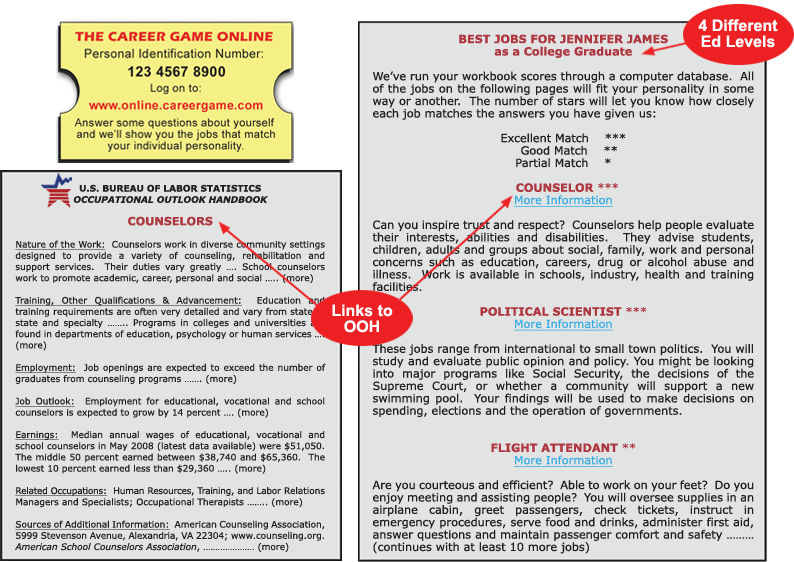Accurately Matches Personality to Jobs at Incremental Education Levels
Three flexible techniques adapt to any grade or counseling situation

Age appropriate, rapid-fire Interest Inventories based on Dr. John Holland's RIASEC Hexagon match personality to jobs from the Occupational Outlook Handbook at incremental educational levels. Features clickable links for each matching job, plus a vast library of resources including videos, job outlooks and salaries, along with vocational and financial aid information. Counselors get their own home page to optionally follow and advise. Try it yourself. Click here to get a FREE TRIAL.

Age appropriate, color-coded, RIASEC based Interest Inventories along with open-ended questions that link everyday hobbies, heroes and favorites to future job satisfaction. Showing students how to convert their every day experiences into a career profile excites curiousity and builds self-esteem. Great for classroom discussion, parent appreciation, and a terrific way to learn about your students.

This multimedia introduction to careers can be entirely self-directed or expanded into fun classroom sessions.The workbook starts with open-ended questions that link everyday experiences to career clues. Next, a color-coded RIASEC based Interest Inventory creates a career pesonality profile. Finally, students go online from school or home to computer-match themselves to jobs, with links to the DOL's OOH and more. Counselors are able to optionally follow and advise from their own Admin page.